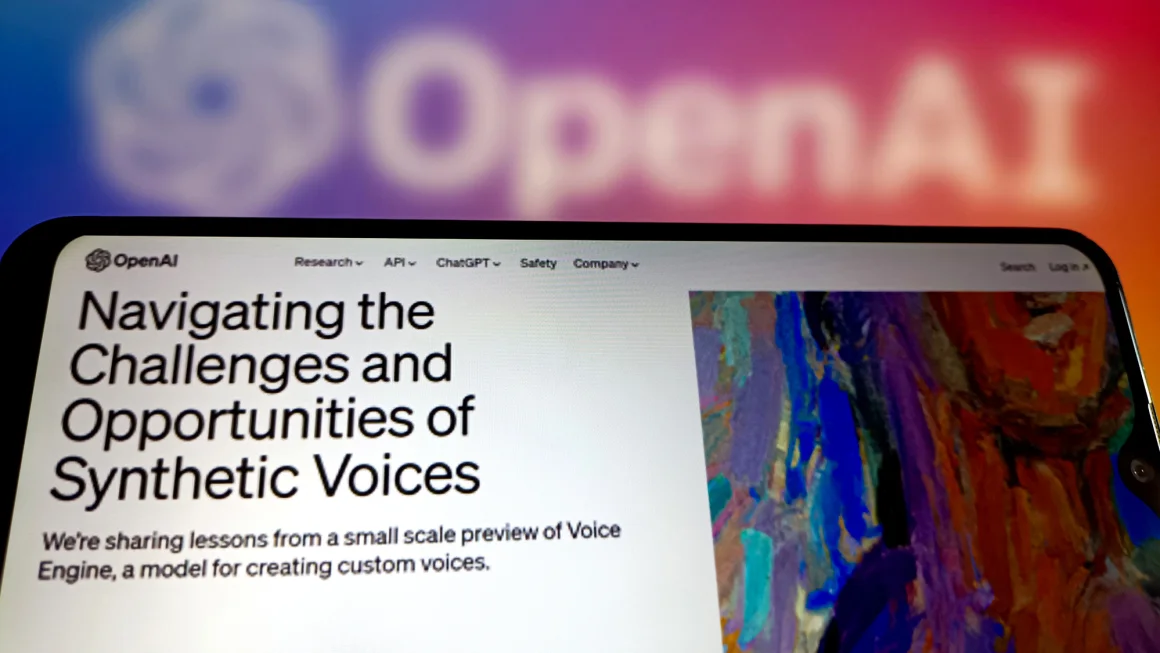OpenAI has recently unveiled a groundbreaking artificial intelligence tool, Voice Engine, designed to accurately mimic human voices. The release of this innovative tool promises significant advancements in various sectors including accessibility, education, and healthcare. Despite its potential benefits, the Voice Engine has raised concerns regarding its potential misuse in spreading misinformation and facilitating scams.
Harnessing AI for Voice Replication:
Unlocking New Horizons with Voice Engine
OpenAI’s Voice Engine demonstrates remarkable proficiency by requiring only a 15-second voice sample to create a convincing voice replica. This tool is adept at reading text in the generated voice, offering vast possibilities for users, particularly in personalized accessibility and interactive services. OpenAI’s strategy mirrors its success with ChatGPT, emphasizing the company’s skill in achieving widespread adoption of its AI technologies.
Balancing Innovation and Ethics:
Navigating the Ethical Landscape of AI Voices
OpenAI acknowledges the ethical implications of its Voice Engine, especially in sensitive periods like election years. With concerns over disinformation and identity theft looming, OpenAI is currently limiting the tool’s use to a select group of trusted partners. These partners are bound by agreements to prevent the misuse of the technology, such as recreating voices without consent and ensuring AI-generated audio is clearly marked.
Multilingual Capabilities and Future Prospects:
Crossing Language Barriers with AI
One of the standout features of the Voice Engine is its ability to translate a single voice sample into multiple languages while maintaining the original tone and accent. This multilingual capability could revolutionize communication across different language speakers and enhance global connectivity. OpenAI also contemplates significant adjustments in security protocols, like moving away from voice authentication in sensitive applications, to pave the way for safer use of synthetic voice technology.
OpenAI’s Voice Engine is setting a new benchmark in the realm of artificial intelligence with its ability to mimic human voices with striking accuracy. While it opens up a myriad of opportunities for innovation, it also necessitates stringent ethical considerations and regulatory measures to prevent potential abuses. As OpenAI continues to refine this technology, the balance between technological advancement and ethical responsibility remains paramount. The evolution of Voice Engine will likely influence not just technological landscapes but also societal norms around communication and security.






















